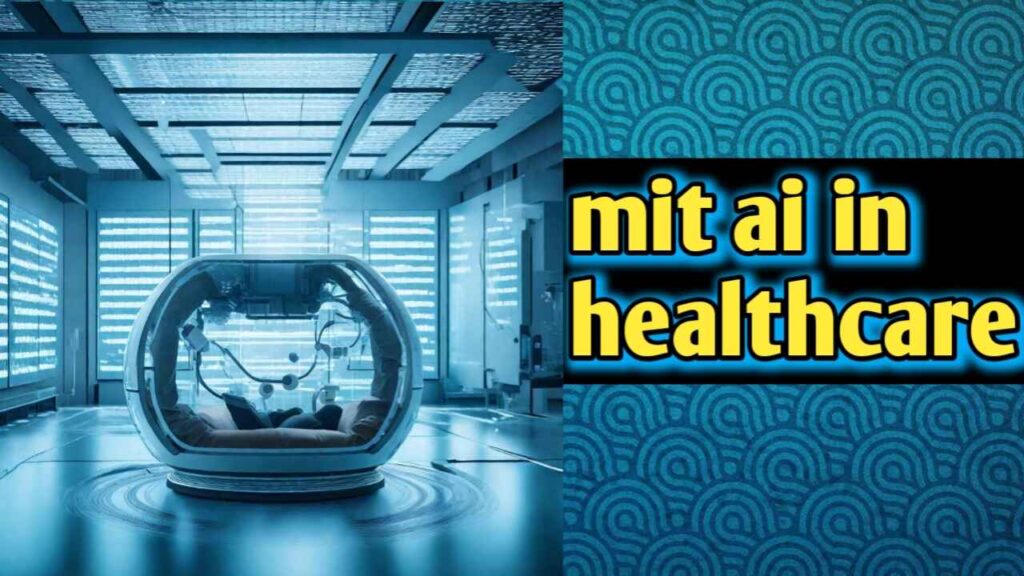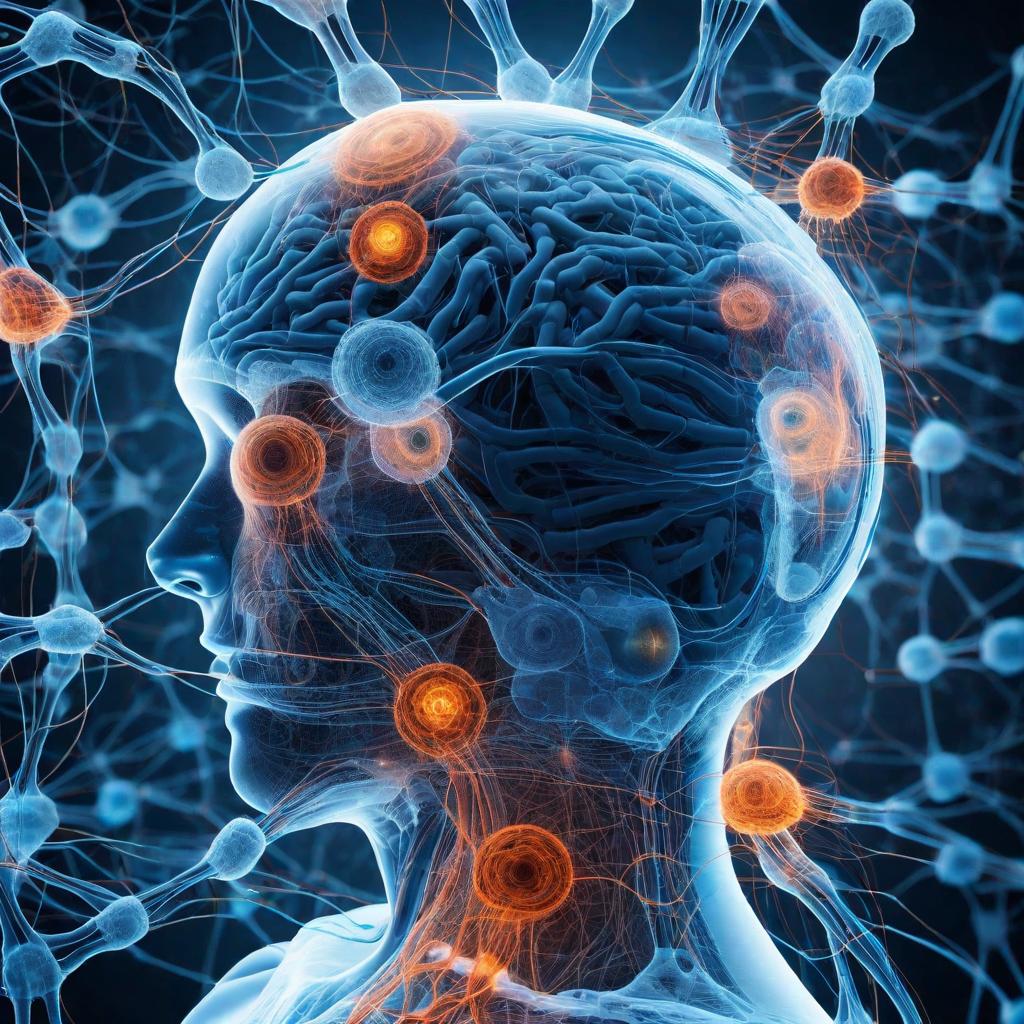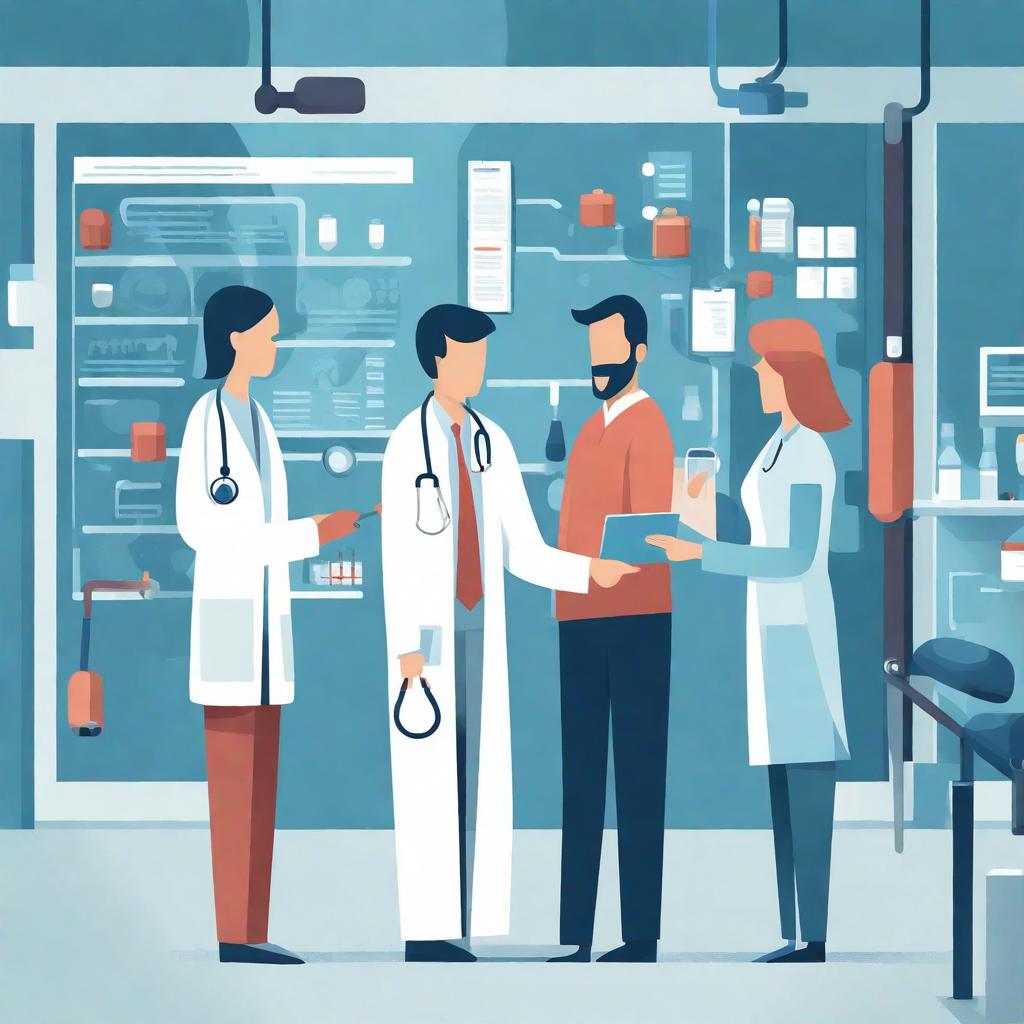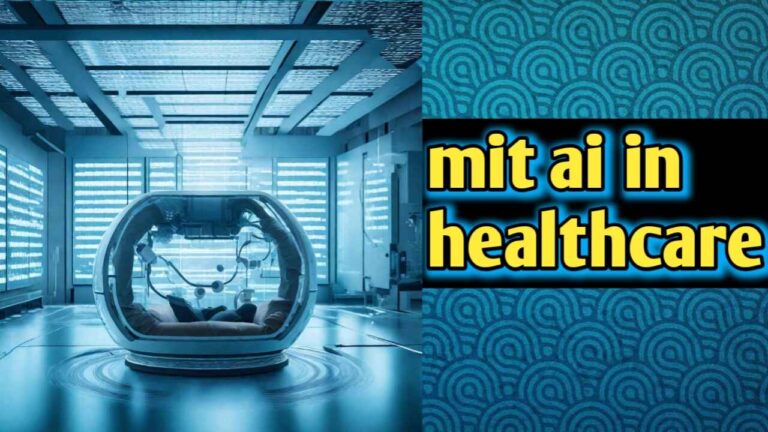
Introduction
mit ai in healthcare
mit ai in healthcare AI has significantly changed the healthcare industry, enhancing patient care, diagnosis, and treatment.
The innovative advances in drug development, personalized medicine, and medical imaging analysis that MIT has made to the field of artificial intelligence for healthcare are numerous.
Their programs promise to revolutionize the sector and improve patient outcomes by bringing forth more precise diagnosis, customized therapies, and quicker medication development.
1. The Role of AI in Healthcare
A. AI plays a pivotal role in healthcare advancements, significantly impacting patient care. Its ability to process vast amounts of data enables quicker and more accurate diagnoses.
AI algorithms aid in medical imaging interpretation, identifying anomalies that might be missed by human eyes.
Moreover, AI-driven personalized medicine tailors treatments to individual patients, considering genetic, environmental, and lifestyle factors, thus improving efficacy and reducing adverse effects.
Remote monitoring and predictive analytics further enhance patient care, allowing for proactive interventions, ultimately minimizing hospital readmissions and complications.
AI’s role extends to administrative tasks, streamlining operations, and reducing errors.
MIT’s research and innovations in AI have led to breakthroughs, emphasizing not only the technology’s potential but also the need for ethical deployment,
ensuring patient privacy and fostering trust in these transformative healthcare solutions.
B. MIT has adopted a thorough strategy for using AI technologies to improve healthcare. Their focus is on creating AI systems that combine state-of-the-art technology and medical knowledge.
In order to guarantee accuracy and dependability in patient care, diagnosis, and treatment, MIT researchers place a high priority on developing AI models that can handle complicated healthcare data. What Problems Can AI Solve In Healthcare
In order to create reliable solutions, their strategy combines interdisciplinary cooperation with knowledge in AI, computer science, and health.
It is clear that MIT is committed to the ethical application of AI in healthcare, guaranteeing that these technologies are not just cutting edge but also reliable and safe.
The organization’s dedication to ongoing innovation and research is demonstrated by its efforts to improve drug development, personalized medicine, and medical imaging analysis.
They are also establishing standards for the responsible and significant application of AI in the healthcare industry.
2. AI Applications in Diagnostics and Imaging
A. Innovative AI technologies that are being pioneered at MIT are revolutionizing medical imaging for diagnostic purposes.
Their innovations cover a variety of AI uses that improve the precision and speed of image processing.
Accurate medical image interpretation, including X-ray, MRI, and CT scan interpretation, is made possible by MIT machine learning techniques.
The diagnostic accuracy of these AI systems is enhanced by their exceptional ability to identify tiny irregularities or patterns that may elude human observation.
MIT’s focus on AI in medical imaging includes real-time picture processing to help physicians see possible problems early on. mit ai in healthcare
Furthermore, their research explores the use of AI to improve imaging methods, producing crisper, higher-resolution images that improve the diagnostic process as a whole.
MIT’s commitment to advancing AI in medical imaging demonstrates a desire to enhance patient care, diagnostic precision, and the general effectiveness of healthcare provision

B. AI uses sophisticated algorithms and machine learning models to play a critical role in disease detection and accurate diagnosis.
In radiography, for example, AI helps detect abnormalities on medical pictures early on, which helps with the prompt diagnosis of diseases like cancer, fractures, or cardiovascular problems.
Furthermore, AI-powered systems interpret imaging data with remarkable accuracy, eliminating human error and facilitating quicker, more precise diagnosis.
AI, for example, is used in pathology to evaluate tissue samples and find cellular abnormalities that may be signs of disease.
Furthermore, AI’s capacity to handle enormous amounts of patient data enables predictive analytics, which can identify possible health issues before symptoms appear.
These AI-powered technologies enhance patient outcomes and promote a more effective healthcare system by optimizing treatment regimens and improving diagnostic accuracy.
This eventually results in improved and more individualized medical attention
3. Patient Care and Personalized Medicine
A. AI is causing a revolution in patient care through tailored medicine, especially at MIT where ground-breaking initiatives are being undertaken.
To customize care for each patient, MIT’s AI systems examine enormous databases that include genetic data, medical history, Technology related
and environmental variables. More accurate diagnoses are made possible by this individualized approach,
which also suggests therapies that are tailored to each patient’s particular needs.
The accuracy and effectiveness of treatment programs are gradually increased by MIT’s AI models, which are always learning and adapting.
AI enables medical providers to create individualized interventions that minimize side effects and maximize treatment success by taking into account a patient’s genetic composition,
lifestyle, and other relevant data. With its focus on customized medicine, MIT is leading the way in patient-centric care, which is a major

improvement in healthcare that tries to improve patient outcomes and quality of life.
B. MIT is doing ground-breaking research on leveraging AI to customize healthcare solutions to the specific needs of each patient.
Their strategy entails creating artificial intelligence (AI) models that examine a variety of patient data, including as genetic data,
medical histories, and environmental variables. MIT’s AI systems combine this enormous amount of data to provide customized healthcare solutions.
These methods concentrate on precisely forecasting and averting illnesses, refining therapeutic strategies, and enhancing general patient outcomes.
The focus placed by MIT on optimizing AI models to constantly learn and adjust guarantees that medical therapies change in response to each patient’s unique set of needs.
This customized strategy represents a substantial advancement toward more accurate and patient-centered healthcare delivery by streamlining treatment processes,
reducing risks, and optimizing the efficacy of medical interventions. It also improves diagnostic accuracy.
4. AI-Powered Drug Discovery and Development
A. The process of finding and developing new drugs is being greatly accelerated and improved using MIT’s AI models. With the use of large datasets and sophisticated algorithms,
MIT’s AI expedites the process of finding promising therapeutic candidates.
By effectively forecasting molecular interactions, drug-target binding, and possible side effects,
these models greatly cut down on the time and money needed for preclinical research.
Moreover, AI streamlines the drug development process by helping to design new molecules with desired therapeutic qualities.
The creative AI-driven methods developed at MIT not only speed up the process of finding new treatments but also help repurpose old ones for various ailments, which might cut costs and time.
This ground-breaking application of AI to medication development demonstrates MIT’s dedication to enhancing pharmaceutical research and introducing cutting-edge treatments to the market for better patient care and available therapies.

B. By creatively using AI, MIT has significantly accelerated the discovery of new medications and therapeutic alternatives.
Their achievements in this field are based on using sophisticated computer models and algorithms to quickly examine large amounts of chemical and biological data.
MIT’s AI algorithms are excellent in identifying chemicals with therapeutic potential,
predicting possible medication candidates, and analyzing molecular interactions.
By greatly streamlining the drug development process, these technologies cut down on the time and money typically needed for preclinical research.
In addition to focusing on finding new pharmaceuticals more quickly, MIT’s strategy places a strong emphasis on repurposing existing drugs for innovative therapeutic applications,
which could hasten the availability of treatments.
The groundbreaking work being done at MIT in this field represents a paradigm shift in drug development,
offering more effective and varied treatment options for a range of medical ailments.
5. Challenges and Ethical Considerations
A. MIT’s approach centers on the ethical problems and numerous challenges that arise when implementing AI in healthcare.
Data privacy, algorithmic biases, and legal compliance are among the difficulties.
As part of its approach, MIT prioritizes patient privacy by using encryption and safe data management practices.
MIT places a strong emphasis on rigorous algorithm validation and diverse, representative datasets in order to reduce biases.
Their method incorporates explainable AI models, improving interpretability and transparency—two essential components for morally sound healthcare decision-making.
The role of AI in clinical decision-making and guaranteeing human oversight in crucial healthcare situations are the main ethical concerns.
MIT advocates for responsible AI integration by fostering interdisciplinary cooperation and ongoing ethical discussions.
Their devoted attempts to resolve difficulties and moral conundrums are a testament to their dedication to moral, open, and significant AI integration in the healthcare industry.

B. MIT promotes the ethical and appropriate use of AI in healthcare through a variety of initiatives.
Their methodology entails strict criteria that prioritize accountability, openness, and fairness in the creation of AI.
MIT places a high priority on creating interpretable algorithms to guarantee decision-making processes are clear.
To reduce biases and advance fair healthcare outcomes, they support inclusive and varied datasets.
Moreover, MIT leads projects that put patient privacy and data security first by using strong encryption and safe handling procedures.
To make sure AI complies with moral and ethical norms, they promote constant communication, interdisciplinary teamwork, and ethical evaluations.
MIT’s steadfast adherence to responsible AI implementation highlights their commitment to using technology morally and promoting its application in ways that advance and put patient welfare first in the healthcare industry.
6. MIT’s Collaborations and Partnerships
A. MIT has broad and significant partnerships in the advancement of AI applications in healthcare.
By collaborating with medical facilities, MIT carries out innovative research that connects AI and medicine,
improving patient care, treatment effectiveness, and diagnosis accuracy.
Partnerships with business partners guarantee that AI advances are translated into workable solutions, advancing the creation of AI-powered medical systems and equipment.
The ethical AI deployment and regulatory compliance in the healthcare industry are made possible by MIT’s cooperation with a variety of entities, including tech companies and regulatory authorities.
These partnerships provide a strong network that facilitates expertise, resource sharing, and knowledge exchange, which accelerates the development and use of AI-driven healthcare solutions.
The cooperative strategy used by MIT represents a group endeavor to transform healthcare via the moral and creative application of AI technologies.

B. MIT’s joint efforts in healthcare innovation have produced excellent case studies and success stories
that demonstrate the revolutionary effects of their collaborations. One such example is the development of AI-driven diagnostic tools through a partnership between MIT researchers and a top healthcare organization.
With the use of these techniques, medical imaging of rare diseases could be identified with much more accuracy, resulting in prompt and accurate diagnosis.
Another example of success is a collaboration between MIT and a pharmaceutical business that uses AI algorithms to expedite the drug discovery process.
This partnership sped up the process of identifying promising drug candidates, which in turn sped up the creation of novel treatments for previously difficult medical diseases.
The aforementioned case studies demonstrate MIT’s capacity to propel significant progress in healthcare via cooperative endeavors, cultivating innovations in diagnosis, therapy, and comprehensive patient care.
7. Future Prospects and Emerging Trends
A. AI in healthcare has a bright future ahead of it, and MIT is actively influencing this direction.
Personalized medicine, predictive diagnoses, and remote patient monitoring are just a few of the areas in which MIT’s cutting-edge AI research is redefining healthcare.
By focusing on the moral, open, and responsible application of AI technologies, MIT’s innovative efforts set the standard for the sector.
Their contributions range from leading the way in drug development and discovery procedures to improving AI-driven medical imaging analysis.
By advancing advances in precision medicine, streamlining healthcare operations, and optimizing patient care,
MIT’s ongoing collaborations and initiatives envision a future in which AI will transform the healthcare industry and usher in a more patient-centric, technologically advanced paradigm.

B. Current research initiatives at MIT predict fascinating new developments in AI-driven healthcare.
A noteworthy development is the combination of wearable technology and artificial intelligence (AI),
which makes it possible to gather and monitor health data continuously.
The focus of MIT’s efforts in this area is on creating AI algorithms that analyze wearable data to anticipate and avert health problems.
Furthermore, MIT is investigating the use of AI to the interpretation of complicated genetic data for customized treatment regimens.
This combination of AI with genomics and precision medicine is a leading field. Combining AI and telemedicine to improve remote diagnosis and individualized care is another new trend.
The commitment of MIT to these trends represents a future in which AI-driven healthcare solutions give people all over the world more proactive, individualized, and easily available care.
Conclusion
mit ai in healthcare has made revolutionary advances in the fields of patient care, treatment, and diagnosis via its AI contributions to healthcare.
Their cutting-edge AI models have revolutionized healthcare practices by optimizing drug discovery, customized treatment, and medical imaging.
As AI offers improved diagnostic accuracy, customized therapies, and streamlined healthcare processes, further research and innovation in this area are necessary.
By guaranteeing patient privacy and building trust, MIT’s dedication to the moral and responsible application of AI sets a standard for the industry.
Future developments in AI research and innovation point to a more accurate, patient-centered,
and accessible healthcare system that will eventually improve healthcare worldwide and open up new opportunities for improved patient outcomes.
FAQs
AI revolutionizes patient care by enhancing diagnoses, personalizing treatments, and increasing operational efficiencies. AI improves the precision of medical imaging, helps identify diseases, and customizes care, all of which lead to better patient outcomes AI might lead to more accurate diagnosis, more efficient operations, and more individualized care, which would pave the way for better healthcare everywhere.1. What effect does AI have on healthcare?
2. How is patient care improved by AI?
3. What role does AI play in healthcare going forward?







1 thought on “Unveiling the Future of Health: mit ai in healthcare Driving Revolutionary Progress”